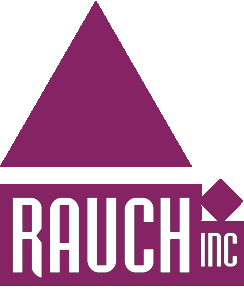Interpreting services looks ahead to next generation
Director of Interpreting Services Dave Calvert
Dave Calvert learned sign language because of his best friend who is deaf. It was he who suggested Calvert become an interpreter after Calvert had started in the journalism field. Jump ahead several years later, and Dave has been the director of interpreting services at Rauch, Inc. for four years—a program that schedules 18 jobs a day on average.
Interpreting services consists of five staff interpreters, plus Dave and Karen Newlin—the interpreter coordinator who schedules and organizes appointments. The program also utilizes contract interpreters due to demand.
Calvert said the program’s top three interpreting areas are medical, educational, and legal, respectively. They also handle mental health, performing arts, and community. Dave said he has interpreted events from Cher at the KFC Yum! Center to Sunday morning church services.
Although each staff member handles a variety of interpreting areas, each member does have his or her own niche in interpreting, for instance Dave and staff member Josh are both certified in legal interpreting.
Although Dave and Josh work with the program, Dave said it is a dominantly female field due to the female brain’s ability to handle language.
“Most men become connected to the (deaf) community through their family, if a family or friend is deaf or if their school offers ASL,” Calvert said.
Calvert said it’s important to have both male and female interpreters because people will be more comfortable with one or the other depending upon the situation.
Either way, Calvert said it is essential as an interpreter to be accepted into the deaf community.
“In any minority community, you’re always going to be a stranger until they decide to accept you,” he said.
The deaf community defines an accepted hearing person as having a “deaf heart.” Dave said this means they understand the culture, the people, oppression, and the history. One small way to become a part of the community is to attend functions and make sure you are actually out in the community on a regular basis.
Another form of acceptance is being given a sign name. Only a deaf person can give a hearing person a sign name. Dave’s, for instance, was given to him by the first deaf person he met—the sign for “d” touched two times to his heart.
“It’s really an honor (a sign name) within the deaf community,” he said.
Rauch’s interpreting services really immerses itself in the deaf community in the areas it serves—currently Southern Indiana, Kentucky, and Cincinnati. Dave said they have become known in the area in the last few years and he hopes to continue that expansion not only in location, but also by increasing Spanish interpreting services in the next year.
Another particular service the program offers is video remote interpreting (VRI). Rauch is the only program in the Southern Indiana/Louisville area offering this service. It is a 24 hour/7 day a week service that provides an on call interpreter. If someone is admitted to the hospital and needs an interpreter, the hospital can use an iPad or computer to call the number and the interpreter will be on the screen to listen to the doctor, interpret to the patient, and then voice back to the doctor what the patient says. This service also works for business meetings and other situations.
Dave said his staff interact like family and they are all very involved within the deaf community—they love what they do and they love the people they work with.
“I get so much more out of this than I put into it,” he said.
Dave’s goal is to build the program and instill a love for the deaf community in the hearts of the next generation.
“When my day comes I want to know that there are people behind me who can take over,” he said. “So that the next generation will be there for the deaf community and that’s really what we’re about here—that’s our passion.”
This post is from guest blogger Darian Eswine--an English and journalism major from Franklin College interning with Rauch this summer.


